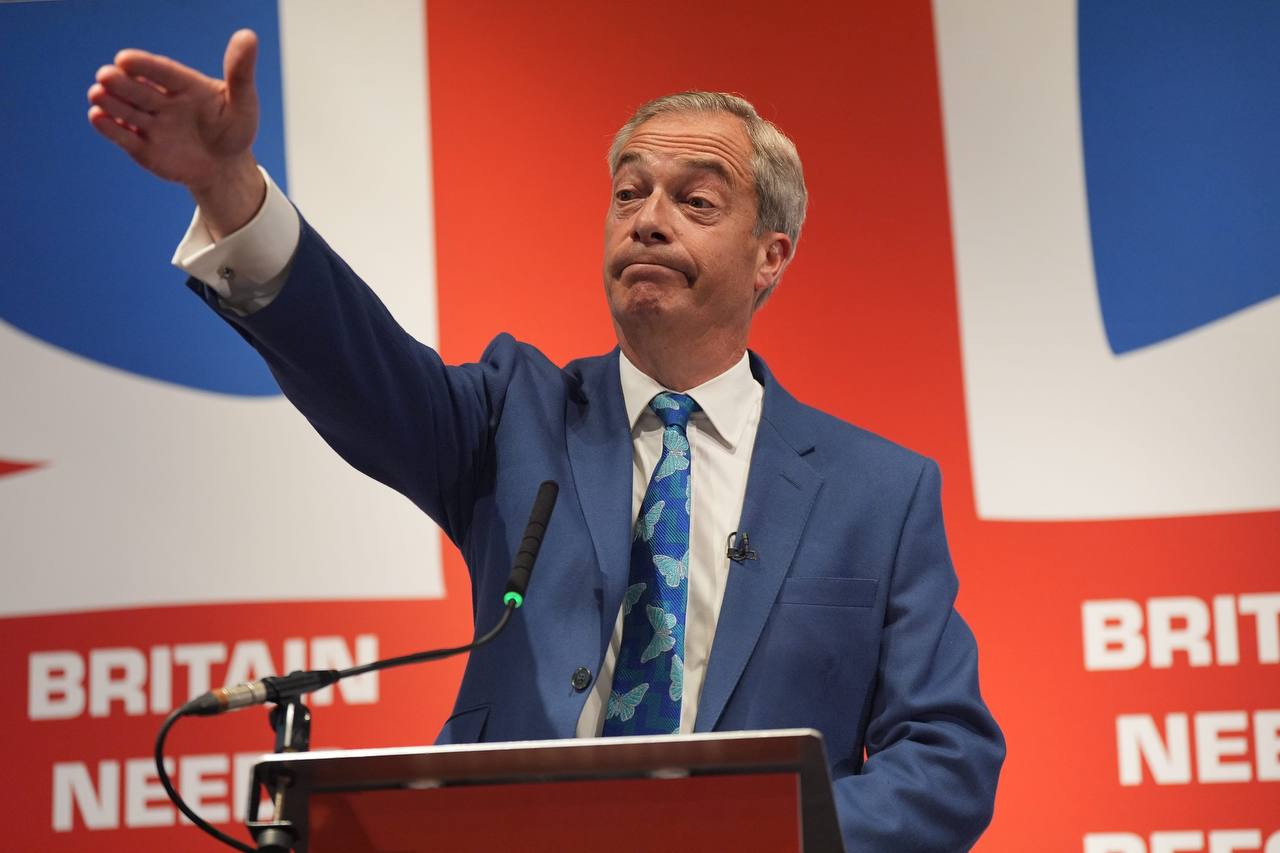From Sidelines to Spotlight: The Empty Promises of Reform UK
By Jonathan Yeboah | Published on December 23, 2024

Politics today is more intense and demanding than ever before. Traditional centre-left and centre-right parties across the globe are grappling with the relentless pressure of far-right challengers. The political unrest in France and Germany carries unmistakable undertones tied to the rise of alternative movements.
Britain is no exception. Politicians across the spectrum have overlooked the silent majority for far too long. This neglect is underscored by recent national opinion polls, which place Labour and Reform UK neck-and-neck, with some surveys even indicating a razor-thin, one-point difference between the two.
As parts of the UK gear up for local elections next year, the results promise to be striking, potentially reshaping the political landscape.
Nigel Farage, since his early days as an MEP, has capitalised on an ever-growing spotlight. However, his political career is marked by a dismal attendance and voting record, often ranking near the bottom. This history raises a critical question: what would Reform UK actually achieve in power?
The answer, quite simply, is very little. In the realm of politics, it is far easier to critique from the sidelines than to deliver substantive results. Labour faced this very dilemma leading up to the 1983 general election under Michael Foot, as did the Conservatives under a succession of three leaders after their 1997 defeat. Reform UK’s rhetoric may resonate with disillusioned voters, but translating slogans into governance is a different challenge altogether.
Reform UK’s raison d’être is singularly centred on immigration, a theme emphasised no fewer than 26 times in its so-called “contract” for the 2024 general election. Its economic proposals, however, resemble little more than neo-liberal fan fiction, lacking any substantive grounding. The party outlined tax cuts amounting to approximately £90 billion, offset by spending reductions of around £150 billion, according to the Institute for Fiscal Studies. Regardless of one’s views on a smaller state, these proposals—had Reform UK been entrusted with governance—were, at best, pure fantasy.
Immigration, the issue at the heart of Reform’s platform, is deeply complex. Addressing it effectively demands meticulous planning, alongside a readiness to confront the short-term economic costs that would accompany a drastic reduction in net migration. Rejecting Reform’s policies on immigration does not imply an endorsement of the current levels; rather, it underscores the importance of nuance and context in this debate—elements often missing from political discourse. The British public has consistently called for immigration to be managed and controlled responsibly. Yet, successive governments have not only failed to deliver on promised caps but have repeatedly reneged on their commitments. Identifying a problem widely recognised by the British public is one thing; demonstrating the competence to govern and resolve it is quite another.
The mantle now rests with an increasingly unpopular Labour government, which faces four critical challenges: persuading the public to support its revenue-raising strategies, fostering economic growth, effectively managing immigration, and neutralising the threat of Reform UK by excelling in the first three.
But if there’s one thing to take away, it’s this: being a political commentator is the easiest job in the world—but that doesn’t mean those shouting from the sidelines are remotely prepared to govern the lives of 70 million people.